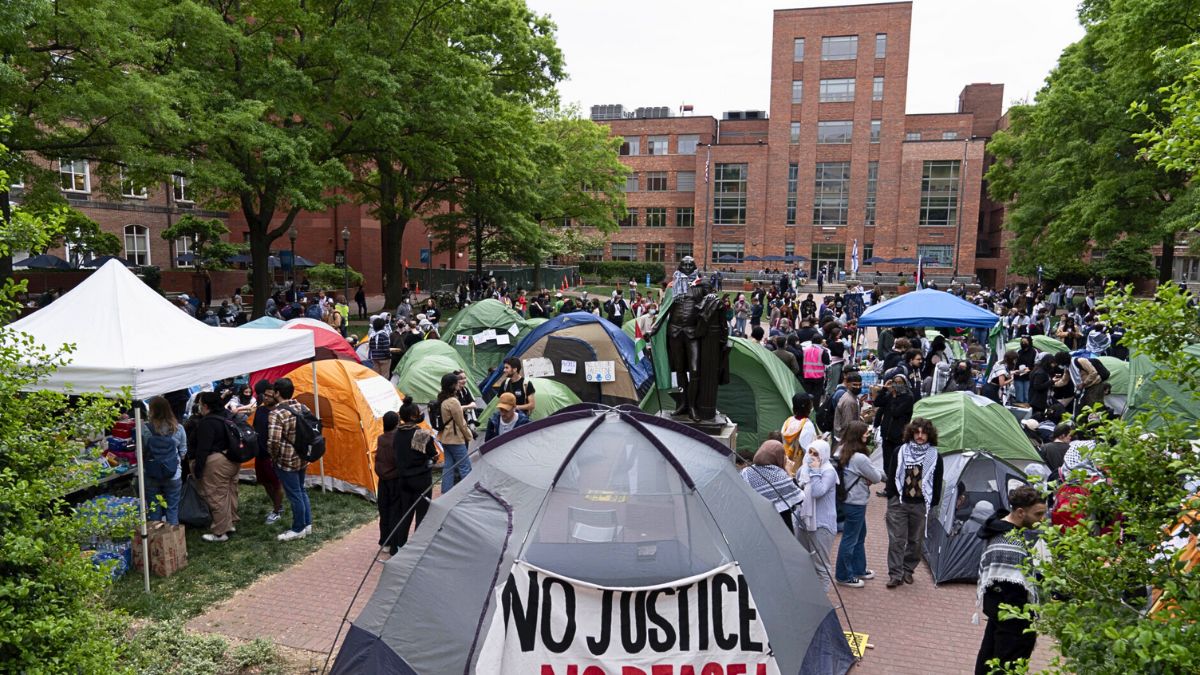The U.S. Department of Justice has concluded that George Washington University (GWU) in Washington, D.C., violated federal civil rights protections by ignoring antisemitic incidents on its campus. The finding marks the latest step in a federal crackdown on campus harassment linked to the Israel-Palestine conflict.
In a letter to GWU president Ellen M. Granberg, Assistant Attorney General for Civil Rights Harmeet K. Dhillon stated that the university was “deliberately indifferent” to discrimination against Jewish and Israeli students. Dhillon emphasized that every student deserves equal educational opportunities free from harassment and abuse, warning that universities engaging in antisemitic discrimination will face legal consequences.
DOJ Findings
The Justice Department’s investigation concluded that GWU failed to address multiple complaints of antisemitism from students and faculty. According to the letter, the university took no meaningful action to counter misconduct or mitigate harm suffered by Jewish students.
The investigation cited violations of Title VI of the Civil Rights Act of 1964, which prohibits discrimination in federally funded institutions, including private universities like GWU.
One example occurred during the spring of 2024, when students established an anti-Israel protest encampment on campus. Jewish students reported harassment, intimidation, and physical assault by protesters, which in some cases made them afraid to attend class.
Incidents Cited
The DOJ letter outlined several incidents:
- A Jewish student surrounded by protesters was threatened and told to leave the area. An assistant dean instructed him to leave, saying he was provoking the crowd.
- Protesters shouted antisemitic slurs at Jewish students walking across campus, forcing them to leave.
- Demonstrators blocked a Jewish counter-protester holding an Israeli flag, preventing movement. Campus police advised the student to leave for safety.
- Another Jewish student was told, “Zionist go die,” “Zionists go to hell,” and “Hamas are freedom fighters.”
The DOJ stated that these events created a hostile environment and that GWU failed to respond adequately.
University Response
GWU confirmed receipt of the DOJ letter and is reviewing it before issuing a formal response. A university spokesperson said GWU condemns antisemitism in all forms and remains committed to maintaining a safe and respectful campus.
The spokesperson added that GWU has worked with the Jewish community, Jewish organizations, and authorities to combat antisemitism and promote inclusion. The university cited past actions aimed at addressing such incidents, though the DOJ determined these were insufficient.
Federal Action and Negotiation
The DOJ indicated it will enforce civil rights law against GWU but did not provide specifics on potential penalties. Instead, it offered to enter negotiations for a voluntary resolution, with an August 22 deadline for initiating talks.
This enforcement action comes as part of the Trump administration’s broader focus on combating antisemitism and anti-Israel activism on U.S. campuses. Federal pressure has been particularly strong on Ivy League and other high-profile institutions.
Political Reactions
While many Jewish community groups support stronger measures to protect students, some leaders have voiced concerns that certain enforcement actions could infringe on free speech rights, which also protect Jewish individuals. Critics, including Senator Chuck Schumer, have accused the administration of using antisemitism as a political weapon against universities it views as hostile.
Pro-Palestinian advocates have also pursued legal action on behalf of activist students and faculty, creating a situation where some universities face litigation from both sides.
Broader Context
The GWU case reflects ongoing tensions between student activism, free speech, and federal civil rights enforcement. With around 25,000 students and a campus located just a mile from the White House, GWU sits at the heart of national political and cultural debates.
As the August 22 negotiation deadline approaches, the outcome could set an important precedent for how universities handle antisemitism complaints, campus protests, and Title VI compliance in the years ahead.
For more information on Title VI protections, visit the U.S. Department of Education’s Office for Civil Rights.
FAQs
What did the DOJ find about GWU?
It found GWU ignored antisemitic incidents.
Which law did GWU allegedly violate?
Title VI of the Civil Rights Act of 1964.
What incidents were cited in the DOJ letter?
Harassment, threats, and antisemitic slurs.
What is the DOJ’s next step?
Offer negotiations before possible enforcement.
How many students attend GWU?
Around 25,000.




